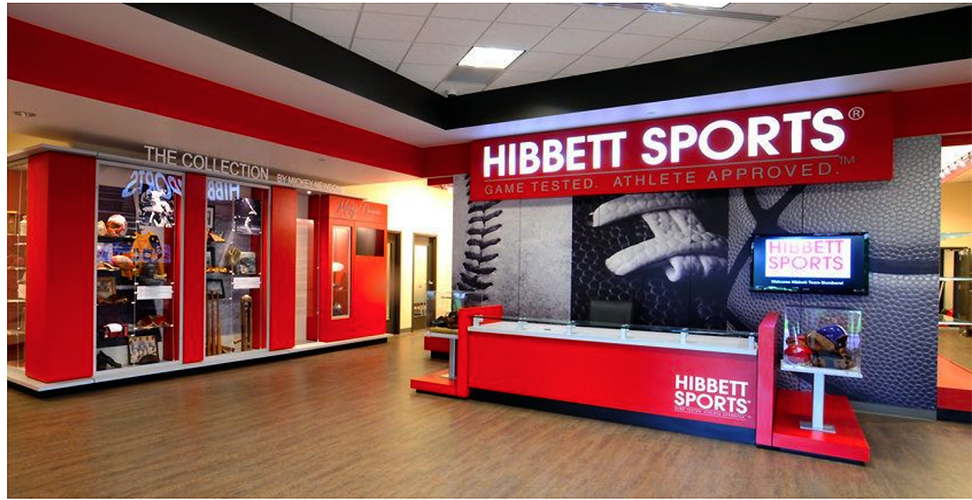Hibbett Sports Inc. reported earnings on an adjusted basis slid 14.3 percent in the fourth quarter, missing Wall Street’s guidance. Same-store sales grew 4 percent, its fifth consecutive quarter of comparable sales growth.
Mike Longo, president and chief executive officer, stated, “Our business continues to perform well as shown by the 4.0 percent comparable store sales performance in the quarter. The sales growth was made possible by the hard work and dedication of our team and their execution of our strategies. Our focus on the toe-to-head concept and the consumer experience is paying off. At the same time, we continue to improve our digital business, which accounted for 14.2 percent of the sales mix in the fourth quarter, setting a new record. Additionally, our City Gear acquisition continues to exceed expectations, both in-store as well as on-line.
Longo continued, “The coronavirus has injected a measure of uncertainty in the market. Like all retailers, we are monitoring the situation and taking the necessary steps to safeguard our customers, our employees, and our stockholders. Currently, we do not anticipate any material disruption to our supply chain during the first quarter. We have experienced a slowdown in demand this week. However, we believe we have ample liquidity and financial flexibility to navigate this period of uncertainty while positioning Hibbett for future success.”
Fourth Quarter Results
Net sales for the 13-week period ended February 1, 2020, increased 2.3 percent to $313.0 million compared with $306.0 million for the 13-week period ended February 2, 2019. Revenues came out ahead of the $304 million analyst consensus target.
Comparable store sales increased 4.0 percent and this was the first quarter to include sales from City Gear. E-commerce sales represented 14.2 percent of total net sales for the fourth quarter. The increase in net sales was primarily attributable to the 37 percent increase in our e-commerce sales compared to last year’s fourth quarter. Sales were driven by strong results in footwear and connected apparel.
Gross margin was 31.5 percent of net sales for the 13-week period ended February 1, 2020, compared with 31.1 percent for the 13-week period ended February 2, 2019. The 46 basis point increase was principally due to lower occupancy costs as a percent of sales.
Store operating, selling and administrative (SG&A) expenses were 26.8 percent of net sales for the 13-week period ended February 1, 2020, compared with 25.5 percent of net sales for the 13-week period ended February 2, 2019. While SG&A expenses as a percent of sales increased approximately 130 bps, the current year expense included City Gear acquisition costs of $4.2 million. The acquisition costs included a charge of $3.3 million for an increase in the estimated valuation of two contingent payments based on an update to City Gear’s projected achievement of defined EBITDA thresholds. On an adjusted basis, comparable SG&A expenses increased 85 basis points to 25.3 percent of net sales for the 13-week period ended February 1, 2020, from 24.5 percent of net sales for the 13-week period ended February 2, 2019. This increase in adjusted SG&A was primarily driven by costs associated with the increase in e‑commerce sales.
Net income for the 13-week period ended February 1, 2020, was $6.0 million, or 34 cents per diluted share, compared with net income of $6.6 million, or 36 cents per share, for the 13-week period ended February 2, 2019. On an adjusted basis, net income for the 13-week period ended February 1, 2020, was $9.0 million, or 51 cents per share, compared with adjusted net income for the 13-week period ended February 2, 2019, of $10.5 million, or 57 cents per diluted share. The adjusted per-share earnings of 51 cents were below Wall Street’s consensus estimate of 62 cents.
The company has not included the 5 cents per share reduction in EPS for executive compensation costs related to the former CEO’s transition in its non-GAAP add-backs to net income.
For the quarter, the company opened four stores, rebranded three Hibbett stores to City Gear stores and closed 23 stores, bringing the store base to 1,081 in 35 states as of February 1, 2020. Store closures primarily included underperforming stores but also included Hibbett stores rebranded to City Gear stores.
Fiscal Year Results
Net sales for the 52-week period ended February 1, 2020, increased 17.4 percent to $1.2 billion compared with $1.0 billion for the 52-week period ended February 2, 2019.
Comparable store sales increased 5.3 percent. Hibbett’s updated guidance on November 22 called for comps in the range of 4.0 percent to 6.0 percent.
Gross margin was 32.4 percent of net sales for the 52-week period ended February 1, 2020, compared with 32.6 percent for the 52-week period ended February 2, 2019. Including strategic realignment expenses primarily related to the $1.1 million gain on operating leases net of accelerated amortization on ROU assets offset by the exclusion of the $1.0 million amortization of an acquisition inventory step-up value, non-GAAP gross margin was 32.4 percent for the 52-week period ended February 1, 2020, compared to the non-GAAP gross margin of 32.8 percent for the 52-week period ended February 2, 2019. Non-GAAP gross margin for the 52-week period ended February 2, 2019, excluded the $1.9 million amortization of an acquisition inventory step-up value.
Store operating, selling and administrative expenses were 26.9 percent of net sales for the 52-week period ended February 1, 2020, compared with 26.2 percent of net sales for the 52-week period ended February 2, 2019. SG&A expenses included $17.4 million and $4.3 million in City Gear acquisition costs for the 52-week periods ended February 1, 2020 and February 2, 2019, respectively. In addition, it included $2.0 million related to the company’s strategic realignment plan for the 52-week period ended February 1, 2020, and $0.3 million related to severance costs for the 52-week period ended February 2, 2019. Excluding these costs, store operating, selling and administrative expenses were 25.2 percent of net sales for the 52-week period ended February 1, 2020, compared with 25.7 percent for the 52-week period ended February 2, 2019. The company has not reflected a reduction in expense for the executive compensation costs related to the former CEO’s transition in our non-GAAP add backs to SG&A.
Net income for the 52-week period ended February 1, 2020, was $27.3 million, or $1.52 per diluted share, compared with $28.4 million, or $1.51 per diluted share, for the 52-week period ended February 2, 2019. On an adjusted basis, net income for the 52-week period ended February 1, 2020, was $41.9 million, or $2.33 per diluted share, compared with adjusted net income of $33.3 million, or $1.77 per diluted share, for the 52-week period ended February 1, 2019.
Adjusted results of $2.33 were on the low-end of company guidance calling for earnings in the range of $2.30 to $2.50.
The company has not included the $0.18 reduction in EPS for executive compensation costs related to the CEO’s transition in its non-GAAP add-backs to net income.
Balance Sheet and Stock Repurchases
Hibbett ended the fourth quarter of Fiscal 2020 with $66.1 million of available cash and cash equivalents on the consolidated balance sheet. As of February 1, 2020, the company had no debt outstanding and $100.0 million available under its credit facilities.
During the fourth quarter, the company repurchased 532,702 shares of common stock for a total expenditure of $14.1 million. Approximately $153.1 million remained authorized for future stock repurchases through January 29, 2022.
Fiscal 2021 Outlook
Due to the current uncertainty about the overall impact the coronavirus will have on its businesses, the company is not providing a full-year outlook for Fiscal Year 2021 at this time. Hibbett said it hopes to provide full-year guidance in May when it releases its first-quarter earnings for 2021.
















